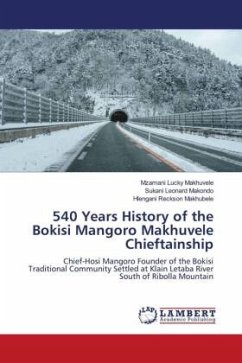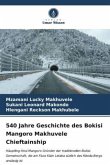Hosi or Chief Mangoro born c.1792 joined other renowned military forces of his time at a young age, as a strong and revolutionary combatant was conscripted into those brigades, travelled to the Northwest and to the far north. The Mangoro Bokisi tribe and community also known as Makhuvele-Mugwena branch of Bakwena was led by Hosi Mangoro in the years coinciding with the Mfecane wars. Hosi Mangoro and his community settled at Speloken in 1832 on the foot of the Klein Letaba River and south of the Ribolla Mountain. The African mode of self-identification those days was through the chieftaincy. The basis of African political and social life was the chiefdom. This was a grouped together members of the same productive unit and was dominated by the members of one clan in this case the Makhuvele clan-alas Bokisi Community. Chief Mangoro Bokisi administered a form of justice that was entirely based on the moral community and the chiefdom, protected the army with his war medicines, interceded with the clan ancestors and regulated production strategies. Chief Mangoro Bokisi gave to his followers a sense of belonging and unity by using symbols of office that were believed to invest him powers.
Bitte wählen Sie Ihr Anliegen aus.
Rechnungen
Retourenschein anfordern
Bestellstatus
Storno








